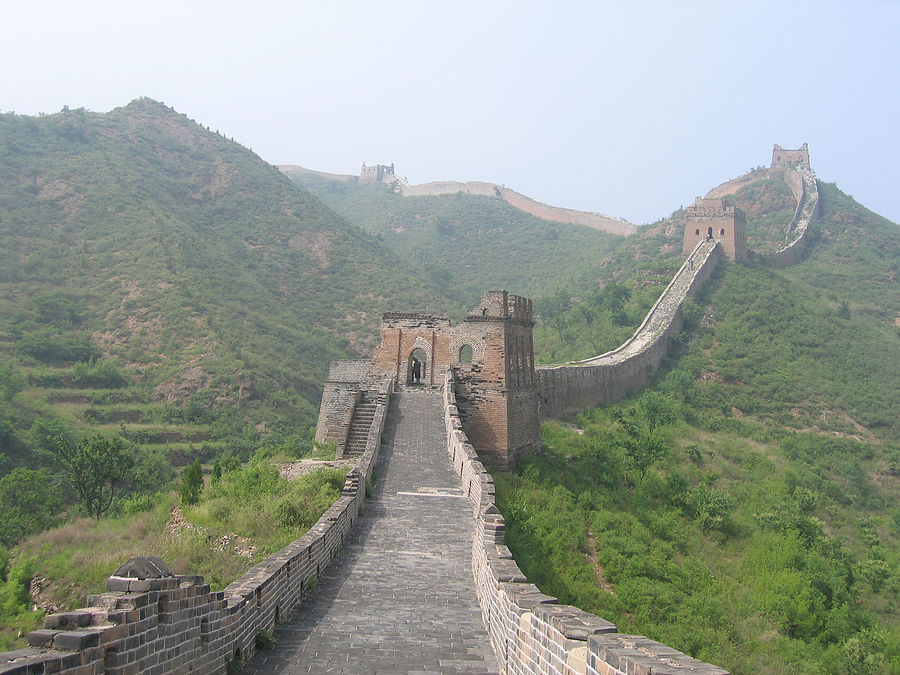China is considering a proposal to create a ministerial-level body to manage its state-owned banks and non-bank financial enterprises, two sources with knowledge of the plan said, a move that would strengthen Beijing’s grip on its lenders.
China’s motivations for the move weren’t clear, but the step could help the government tighten its control over the financial sector at a time when worries about local debt obligations are intensifying.
The new body would have a say in the management of China’s biggest state-controlled financial institutions, including banks, brokerages, insurers, trust firms and funds, said the sources, one of whom has ties to China’s top leaders and another who is a senior executive in China’s financial industry.
By creating an overseer for banks, Beijing could distribute the burden of managing its numerous and sometimes unruly state-owned businesses.
The new financial supervisor would also outrank top bank executives in China’s political hierarchy, said the sources, an important consideration in a country where top managers of state-controlled firms are usually high-ranking Communist Party members.
The heads of China’s financial regulators, including the China Banking Regulatory Commission and the central bank, often have the same or slightly lower Party rank as the heads of the top state-owned firms.
The sources have requested anonymity because they were not authorized to speak to reporters.
The plan, which needs to be approved by China’s State Council, or cabinet, has been intensely debated and has been under consideration for months, the sources said.
NEW REGULATOR
The new government entity would be similar to China’s powerful State-owned Assets Supervision and Administration Commission (SASAC), which oversees the country’s 121 biggest — and mostly non-financial — state-owned firms.
SASAC acts as something like a board of directors for those companies, sometimes weighing in on strategic moves and deciding how much in dividends the firms should pay to the government.
But Chinese banks do not fall under SASAC’s purview, leaving a gap in Beijing’s supervision of lenders.
This hole cannot be adequately filled by the present group of Chinese financial regulators, which have no say in the appointment of top executives at state-owned firms, one of the sources said.
“How can a regulator supervise or criticize a state-owned enterprise president who outranks him?” the source with leadership ties said.
SASAC, the banking, securities and insurance regulators declined to comment when contacted by telephone.
Some analysts were skeptical that closer state scrutiny of China’s financial sector would do the country any good.
Given that Beijing already has a big say over banks’ lending, Chinese lenders need less, not more, state intervention, said Jim Antos, an analyst at Mizuho Securities Asia in Hong Kong.
“It’s one more layer of bureaucracy,” said Antos. “It isn’t because of banks’ policy that we had excessive lending in 2009. It was because of the government’s policy.”
A lending spree ordered by Beijing after the 2008 financial crisis has saddled China with a pile of debt that is threatening to sour and hobble its banks and economy, the world’s second biggest.
Still, if the plan is approved, a “financial SASAC” would be created before or during the next scheduled five-yearly cabinet reshuffle in 2013, the sources said.
The front-runner to head the financial SASAC is Lou Jiwei, currently chairman of China Investment Corp, the country’s $300 billion sovereign wealth fund, according to the sources.
Other candidates include securities regulator Shang Fulin.
Under the plan, the old SASAC would oversee industrial and telecommunications state-owned enterprises (SOEs) and transfer oversight of any financial institutions it oversees to the new entity.
“The financial SASAC would monitor central government SOEs’ performance. At the moment, no one supervises performance,” the financial industry source told Reuters, referring to profits.
Under the plan, China International Capital Corp, the country’s most venerable investment bank, is likely to come under the new ministry’s wing, the sources said. Its CEO, Levin Zhu, is the media-shy son of former premier Zhu Rongji.
Central Huijin, the largest shareholder of the country’s state-controlled banks, may be hived off from China’s sovereign wealth fund, CIC, and report to the financial SASAC, the sources said.
But CIC itself and China’s $130 billion pension fund are unlikely to come under the jurisdiction of the new ministry.
If things go according to plan, the China Banking Regulatory Commission, the China Securities Regulatory Commission and the China Insurance Regulatory Commission would continue to be responsible for formulating and implementing policies as well as issuing licenses.
The banking, securities and insurance regulators would also regulate foreign and domestic private financial institutions for any irregularities.
Topics Legislation China
Was this article valuable?
Here are more articles you may enjoy.



 Jury Finds Johnson & Johnson Liable for Cancer in Latest Talc Trial
Jury Finds Johnson & Johnson Liable for Cancer in Latest Talc Trial  Florida Regulators Crack the Whip on Auto Warranty Firm, Fake Certificates of Insurance
Florida Regulators Crack the Whip on Auto Warranty Firm, Fake Certificates of Insurance  Judge Tosses Buffalo Wild Wings Lawsuit That Has ‘No Meat on Its Bones’
Judge Tosses Buffalo Wild Wings Lawsuit That Has ‘No Meat on Its Bones’  Former Broker, Co-Defendant Sentenced to 20 Years in Fraudulent ACA Sign-Ups
Former Broker, Co-Defendant Sentenced to 20 Years in Fraudulent ACA Sign-Ups 

